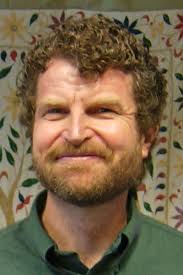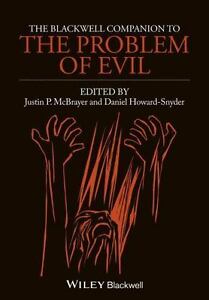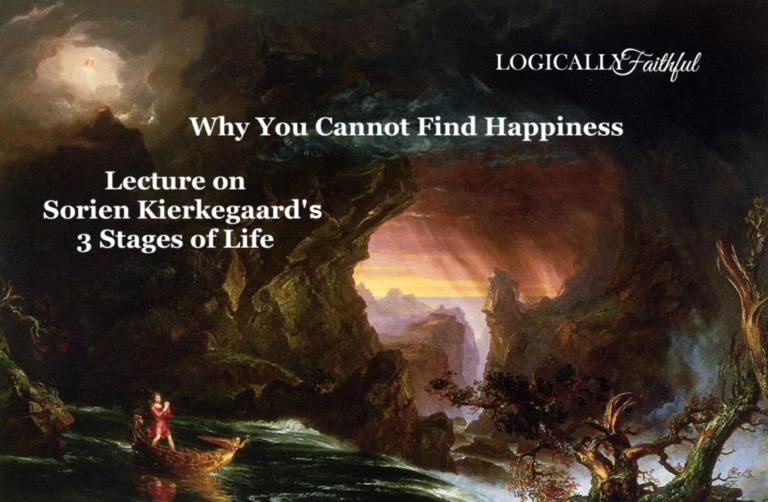
Yes, there is strong cosmological evidence for the fine tuning of the universe that points to a designer. But what is that evidence?
My guest today is Robin Collins one of the contributors to both my volumes on Apologetics, Debating Chrsitian Theism (Oxford, 2011) and Christian Apologetics: An Anthology of Primary Sources (Zondervan, 2013). Scroll down for the amazing podcast interview !
Robin Collins hold a Ph.D., from the University of Notre Dame, and is professor at Messiah College, Grantham, PA. He is specializing in the area of science and religion and has written over twenty-five articles and book chapters on a wide range of topics, such as the fine-tuning of the cosmos as evidence for the existence of God, evolution and original sin, the Doctrine of Atonement, Asian religions and Christianity, and Bohm’s theory of quantum mechanics.
Some of his most recent articles/book chapters are “Philosophy of Science and Religion” in The Oxford Handbook of Science and Religion, “Divine Action and Evolution” in The Oxford Handbook of Philosophical Theology (2009) “The Multiverse Hypothesis: A Theistic Perspective,” in Universe or Multiverse? (Cambridge University Press), and “God and the Laws of Nature,” in Theism or Naturalism: New Philosophical Perspectives (Oxford University Press, forthcoming). He recently received a grant from the John Templeton Foundation to finish a book that presents the case for design based on physics and cosmology, tentatively entitled The Well-Tempered Universe: God, Cosmic Fine-tuning, and the Laws of Nature.
See this link to his connection_building argument for God in the problem of evil he mentioned in the interview or this one.
Imagine this scenario Collins writes:
Suppose we went on a mission to Mars and found a domed structure in which everything was set up just right for life to exist. The temperature, for example, was set around 70o F and the humidity was at 50%; moreover, there was an oxygen recycling system, an energy gathering system, and a whole system for the production of food. Put simply, the domed structure appeared to be a fully functioning biosphere. What conclusion would we draw from finding this structure? Would we draw the conclusion that it just happened to form by chance? Certainly not. Instead, we would unanimously conclude that it was designed by some intelligent being.
Why would we draw this conclusion? Because an intelligent designer appears to be the only plausible explanation for the existence of the structure. That is, the only alternative explanation we can think of–that the structure was formed by some natural process–seems extremely unlikely. Of course, it is possible that, for example, through some volcanic eruption various metals and other compounds could have formed, and then separated out in just the right way to produce the “biosphere,” but such a scenario strikes us as extraordinarily unlikely, thus making this alternative explanation unbelievable.
The universe is analogous to such a “biosphere,” according to recent findings in physics. Almost everything about the basic structure of the universe–for example, the fundamental laws and parameters of physics and the initial distribution of matter and energy–is balanced on a razor’s edge for life to occur. As the eminent Princeton physicist Freeman Dyson notes, “There are many . . . lucky accidents in physics. Without such accidents, water could not exist as liquid, chains of carbon atoms could not form complex organic molecules, and hydrogen atoms could not form breakable bridges between molecules” (p. 251)–in short, life as we know it would be impossible.
Scientists call this extraordinary balancing of the parameters of physics and the initial conditions of the universe the “fine-tuning of the cosmos.” It has been extensively discussed by philosophers, theologians, and scientists, especially since the early 1970s, with hundreds of articles and dozens of books written on the topic. Today, it is widely regarded as offering by far the most persuasive current argument for the existence of God. For example, theoretical physicist and popular science writer Paul Davies–whose early writings were not particularly sympathetic to theism–claims that with regard to basic structure of the universe, “the impression of design is overwhelming” (Davies, 1988, p. 203). Similarly, in response to the life-permitting fine-tuning of the nuclear resonances responsible for the oxygen and carbon synthesis in stars, the famous astrophysicist Sir Fred Hoyle declares that
I do not believe that any scientists who examined the evidence would fail to draw the inference that the laws of nuclear physics have been deliberately designed with regard to the consequences they produce inside stars. If this is so, then my apparently random quirks have become part of a deep-laid scheme. If not then we are back again at a monstrous sequence of accidents. [Fred Hoyle, in Religion and the Scientists, 1959; quoted in Barrow and Tipler, p. 22]
A few examples from the literature of this fine-tuning are listed below:
- If the initial explosion of the big bang had differed in strength by as little as 1 part in 1060, the universe would have either quickly collapsed back on itself, or expanded too rapidly for stars to form. In either case, life would be impossible. [See Davies, 1982, pp. 90-91. (As John Jefferson Davis points out (p. 140), an accuracy of one part in 1060 can be compared to firing a bullet at a one-inch target on the other side of the observable universe, twenty billion light years away, and hitting the target.)
- Calculations indicate that if the strong nuclear force, the force that binds protons and neutrons together in an atom, had been stronger or weaker by as little as 5%, life would be impossible. (Leslie, 1989, pp. 4, 35; Barrow and Tipler, p. 322.)
- Calculations by Brandon Carter show that if gravity had been stronger or weaker by 1 part in 1040, then life-sustaining stars like the sun could not exist. This would most likely make life impossible. (Davies, 1984, p. 242.)
- If the neutron were not about 1.001 times the mass of the proton, all protons would have decayed into neutrons or all neutrons would have decayed into protons, and thus life would not be possible. (Leslie, 1989, pp. 39-40 )
- If the electromagnetic force were slightly stronger or weaker, life would be impossible, for a variety of different reasons. (Leslie, 1988, p. 299.)
Imaginatively, one could think of each instance of fine-tuning as a radio dial: unless all the dials are set exactly right, life would be impossible. Or, one could think of the initial conditions of the universe and the fundamental parameters of physics as a dart board that fills the whole galaxy, and the conditions necessary for life to exist as a small one-foot wide target: unless the dart hits the target, life would be impossible. The fact that the dials are perfectly set, or the dart has hit the target, strongly suggests that someone set the dials or aimed the dart, for it seems enormously improbable that such a coincidence could have happened by chance.
Although individual calculations of fine-tuning are only approximate and could be in error, the fact that the universe is fine-tuned for life is almost beyond question because of the large number of independent instances of apparent fine-tuning. As philosopher John Leslie has pointed out, “clues heaped upon clues can constitute weighty evidence despite doubts about each element in the pile”. What is controversial, however, is the degree to which the fine-tuning provides evidence for the existence of God. As impressive as the argument from fine-tuning seems to be, atheists have raised several significant objections to it. Consequently, those who are aware of these objections, or have thought of them on their own, often will find the argument unconvincing. This is not only true of atheists, but also many theists. I have known, for instance, both a committed Christian Hollywood film-maker and a committed Christian biochemist who remained unconvinced because of certain atheist objections to the argument. This is unfortunate, particularly since the fine-tuning argument is probably the most powerful current argument for the existence of God. (See Christian Apologetics: An Anthology of Primary Sources, Zondervan, 2013 for the full article)
Here are a few videos with him from the PPS
Below is the interivew or on itunes. What do you think!

Podcast: Play in new window | Download




